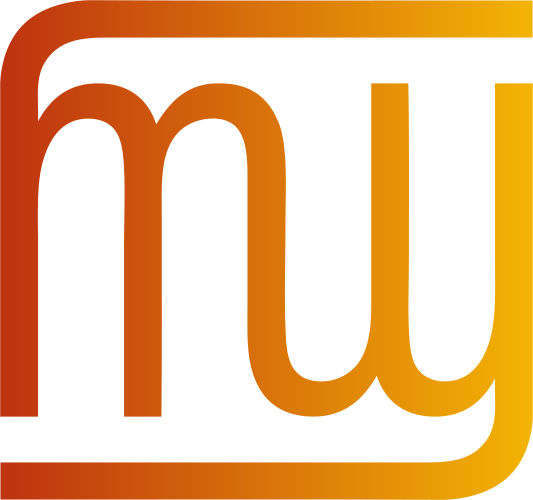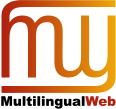
The W3C Internationalization (I18n) Activity works with W3C working groups and liaises with other organizations to make it possible to use Web technologies with different languages, scripts, and cultures. From this page you can find articles and other resources about Web internationalization, and information about the groups that make up the Activity. Read also about opportunities to participate and fund work via the new Sponsorship Program.
What the W3C Internationalization Activity does
Selected quick links
Selected quick links
Selected quick links
Unicode 6.2, Core Specification is now available as paperback book
Responding to requests, the editorial committee has created a modestly-priced print-on-demand volume that contains the complete text of the core specification of Version 6.2 of the Unicode Standard. This 692-page volume may be purchased from Lulu.com for $17.24, plus shipping (prices are available in some other local currencies).
Note that this volume does not include the Version 6.2 code charts, nor does it include the Version 6.2 Standard Annexes and Unicode Character Database, all of which are available only on the Unicode website.
For review: The byte-order mark (BOM) in HTML
Comments are requested on the following proposed update of the article The byte-order mark (BOM) in HTML prior to final publication. NOTE THAT the article is in a temporary location, and will be moved to its final location after the review.
The majority of the article has been rewritten, with the aim of reducing the previous warnings against using the BOM for UTF-8 documents. Also taken into account is the change to the HTML5 spec that raises the precedence of the BOM versus the HTTP header in terms of character encoding declaration.
Please send any comments over the next two weeks to www-international@w3.org (subscribe).
We hope to publish a final version at the beginning of the New Year.
Special interactive sessions planned for the W3C MultilingualWeb workshop in Rome, March 2013

Led by experts in the field, two special break-out sessions on Internationalized Domain Names (IDN) and Linked Open Data (LOD) are planned for the upcoming MultilingualWeb workshop, to be held at the headquarters of the UN’s Food and Agriculture Organization in the heart of Rome, on 12-13 March. We will also continue the Open Space discussions that have been so popular in the past.
In addition, lunch-time exhibition sessions will showcase the recent work and progress made on implementing the ITS 2.0 specification, a major effort in the W3C to improve support for language- and translation-related processes.
Register soon to ensure you get a place, especially if you are interested in also speaking. See the Call for Participation.
The W3C’s MultilingualWeb workshops bring together approximately 150 implementers, leading developers, localizers, researchers and users of the Web to discuss best practices and standards related to all aspects of creating, localizing and deploying the Web multilingually. One and a half days of presentations will be followed by break-out sessions that will allow attendees to explore additional topics in an in-depth, discussion-oriented fashion.
Participation is free.
If you have any questions, contact the program committee chair, Dr. Arle Lommel (arle.lommel@dfki.de).
Last Call Working Draft of Internationalization Tag Set (ITS) 2.0 Published
This document defines data categories and their implementation as a set of elements and attributes called the Internationalization Tag Set (ITS) 2.0.
ITS 2.0 is designed to foster the creation and localization of multilingual Web content, focusing on HTML5, XML based formats in general, and to leverage localization workflows based on the XML Localization Interchange File Format (XLIFF), and language technology applications like machine translation or named entity annotation. In addition to HTML5 and XML, algorithms to convert ITS attributes to NIF is provided.
Last Call means that the MultilingualWeb-LT Working Group feels that ITS 2.0 is ready to move to recommendation. If you have comments on the document, please send them to the list mentioned in the document status before 10 January.
New translation into Danish
Håndtering af tegnkodninger i HTML og CSS (Handling character encodings in HTML and CSS)
This article was translated into Danish thanks to Çiğdem Küçük (Copypanthers). This is the first translation into Danish of an Internationalization Activity article.
W3C Workshop, Call for Participation: Making the Multilingual Web Work
12–13 March 2013 in Rome, Italy, hosted by the Food and Agriculture Organisation of the United Nations.
The W3C announces today the sixth in a series of workshops exploring the mechanisms and processes needed to ensure that the World Wide Web lives up to its potential around the world and across barriers of language and culture.
Anyone may attend at no charge and the W3C welcomes participation by both speakers and non-speaking attendees. Early registration is encouraged due to limited space.
Building on the success of five highly regarded previous workshops in Madrid, Pisa, Limerick, Luxembourg, and Dublin, this workshop will emphasize the application of theory and technology to meet practical needs. The workshop brings together participants interested in the best practices and standards needed to help content creators, localizers, language tools developers, and others meet the challenges of the multilingual Web. It provides further opportunities for networking across communities that span the various aspects involved. We are particularly interested in speakers who can demonstrate novel solutions for reaching out to a global, multilingual audience. Registration now online.
New translation into German
Hintergrundbilder, die die Lokalisierung eines Dokumentes erleichtern (Background images that support localization)
This article was translated into German thanks to Carolin Winterholler (Copypanthers).
Updated Working Draft of Internationalization Tag Set (ITS) 2.0 published
ITS 2.0 responds to current and future needs to extend ITS 1.0 by providing metadata (ITS “data categories”) for HTML5 as well as XML, using ITS data categories for RDF, and adding new data categories relevant for localization and language technologies.
In addition to various clarifications and smaller changes from the second version released in July, this third version of the document adds additional data categories that are now ready for review: Disambiguation, Preserve Space, Id Value, Target Pointer, Preserve Space, Localization Quality Issue, and Localization Quality Précis. In addition it adds support for the use of CSS selectors as an alternative to XPath, updates the ruby markup section to match the HTML5 ruby model, and simplifies a number of sections for greater usability
Please take a look at the new version, and send any comments to public-multilingualweb-lt-comments@w3.org (subscribe at the archive main page). Use “ITS 2.0 WD Comment” at the beginning of the subject line of your email, and add something descriptive after it.
Send any comments before the beginning of October. We are planning to publish a new working draft in October, and a feature complete “last call” working draft in November.
New translations into Polish
Normalizacja w HTML i CSS (Normalization in HTML and CSS)
Ustawianie kodu w narzędziach do tworzenia treści stron (Setting encoding in web authoring applications)
This article was translated into Polish thanks to Biuro tłumaczeń Gdańsk.
Updated article: Background images that support localization
The article Background images that support localization was updated as follows:
- A note was added at the beginning of the background section, mentioning that CSS now enables you to create the examples in the article, where appropriate, and that the article now contains pointers to live code samples using CSS.
- The first sentence of each section describing a technique was changed to better position and introduce the section.
- A sentence was added to the end of each of the above sections, pointing to an example of how CSS could be used to reproduce that example, for browsers that support it.
- ” Internet Explorer and Opera will split the word and the hyphen will appear at the end of the line” was changed to “recent versions of major browsers will split the word and the hyphen will appear at the end of the line”
- The section “By the way” was removed.
Spanish, Russian and Ukrainian translations need to be updated. Please contact Richard Ishida (ishida@w3.org) for the source text. In the meantime, the note and the link text have been added to those translations in English, but not the other additions.
W3C® liability, trademark and permissive license rules apply.
Questions or comments? ishida@w3.org